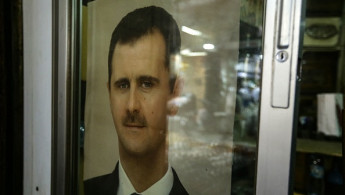Syrian president Assad visits coast as discontent rises over economic conditions
On Thursday, 28 September, Syrian President Bashar al-Assad and his wife toured the coastal provinces of Latakia and Tartous, areas typically thought to be supportive of the regime, amid rising discontent over poor economic conditions.
Social media accounts for the Syrian regime posted pictures of the presidential motorcade driving through the streets of the two cities and photos of the couple hugging school children during celebrations of Prophet Mohammed's birthday.
The visit comes as protests rage in the country's south, with thousands taking to the streets in Suweida province on Friday, demanding the regime's fall.
There have been no notable public protests in the coastal areas of Syria, but dozens of people have been arrested over the past month for statements made online protesting economic conditions.
The Assad family originally comes from the Syrian coast and belongs to the Alawite religious sect, which dominates the area.
Al-Assad has regularly visited coastal areas after major crises in the country, such as after the devastating 6 February earthquake earlier this year.
According to Abu Yousseff Jablawi, a media activist from Latakia, Assad uses these visits to quell popular discontent among his core support base.
"With every crisis, such as what happened with the wildfires, the citrus season depression and the earthquake, we see Assad or his wife rushing to the coast to suggest they are at the helm," Jablawi told The New Arab sister site Al-Araby al-Jadeed.
"Some have come to call him the president of the coast because of his disregard for [the other] areas and his focus on the coast, even in his funding," Jablawi said.
Syria has experienced a sharply accelerating decrease in purchasing power over the last few months, and the government has raised the prices of critical goods, such as fuel.
According to the UN, 9 out of 10 Syrians live in poverty, and most living in regime-held areas are food insecure.
The deteriorating economic conditions have earned criticism from even some of the regime's strongest supporters.
On Sunday, pro-regime journalist Ali Daoud was arrested in Latakia for "weakening national morale" due to a post he made on Facebook questioning the regime for raising fuel prices.
Security services have also arrested dozens under suspicion that they might be connected to the "August 10 Protest Movement," a protest movement originating in the country's coastal region.
The movement is an online, decentralised network of activists who have carried out spontaneous protests and have said they seek the removal of the Assad regime.





 Follow the Middle East's top stories in English at The New Arab on Google News
Follow the Middle East's top stories in English at The New Arab on Google News
![Netanyahu furiously denounced the ICC [Getty]](/sites/default/files/styles/image_330x185/public/2024-11/GettyImages-2169352575.jpg?h=199d8c1f&itok=-vRiruf5)
![Both Hamas and the Palestinian Authority welcomed the ICC arrest warrants [Getty]](/sites/default/files/styles/image_330x185/public/2024-11/GettyImages-2178351173.jpg?h=199d8c1f&itok=TV858iVg)
